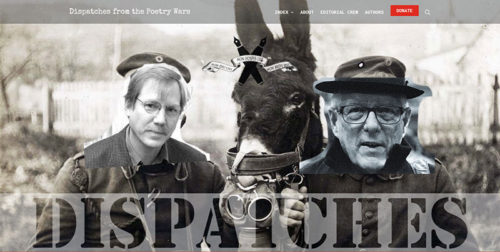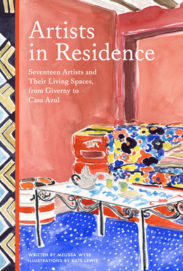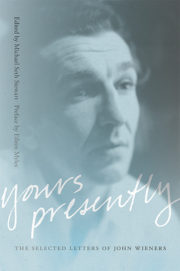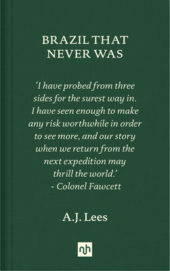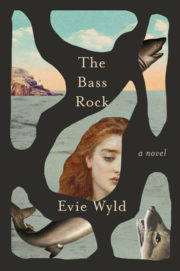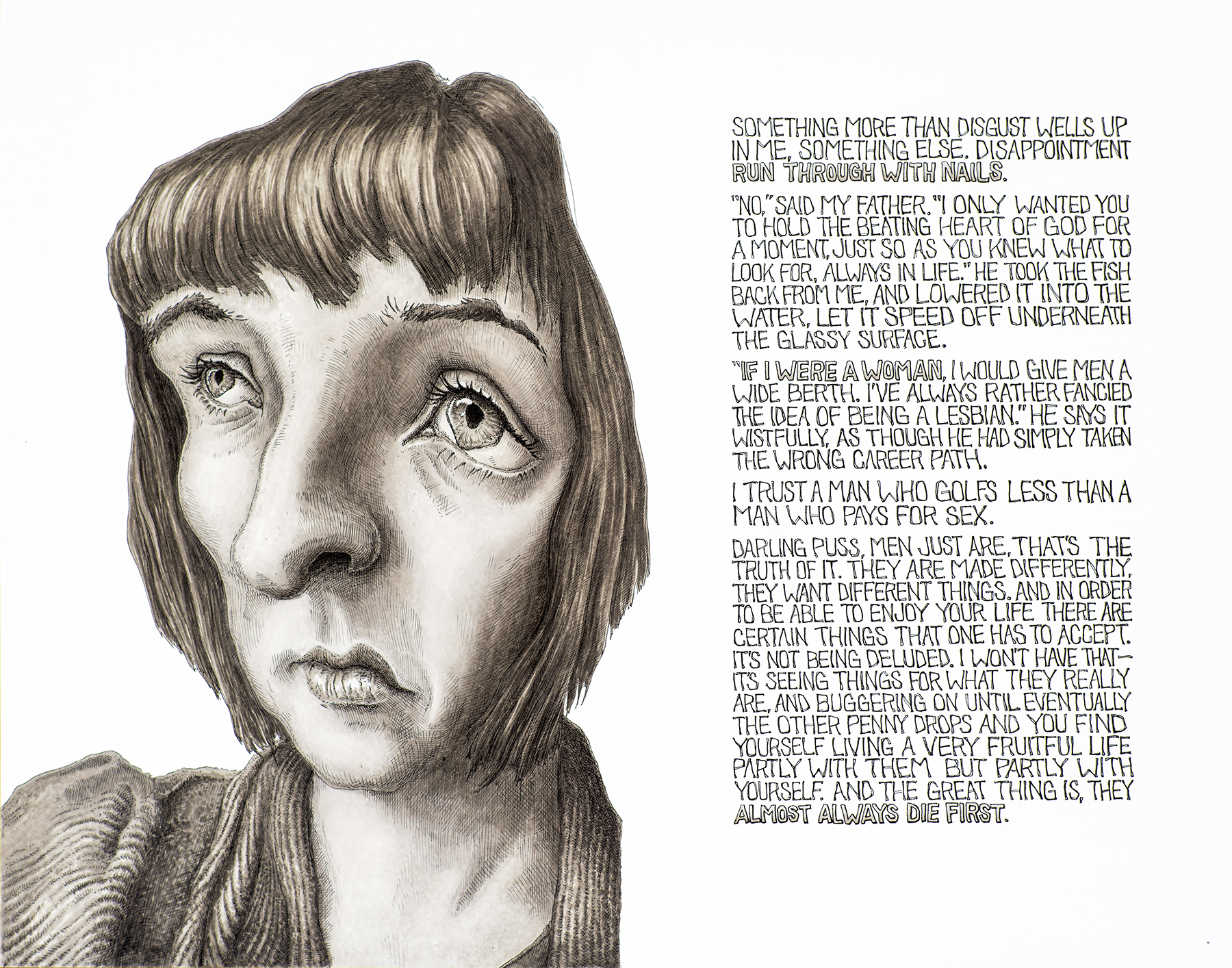by Kent Johnson
The morning after a huge lightning storm over Buenos Aires, in December, 2007, I bid buen día to the young owner of the pensión where I was lodged, in the city’s historic Palermo neighborhood. I’d been there a few days and was taking the ferry across the Río de la Plata the next morning for Montevideo, the city where I’d grown up in the 1960s and early ’70s. I was to meet my extended family there for a special Christmas reunion, in Piriápolis, up the eastern coast, where we’d spent many summers.
Enrique, the owner, waved from the kitchen and laughed that with all the explosions, he’d thought the English had decided the Falklands weren’t quite conquest enough, twenty-five years hence.
Would you like some really good coffee? he asked. I explained I had to hurry to meet a friend, a younger artist I’d been corresponding with, but that if he was around in the evening, the first couple of drinks were on me.
Let’s have more than a couple, he said, I know just the right boliche. You’ll have to tell me tonight about this artist acquaintance of yours. (That he said this will seem unbelievable after you see what unfolded.)
I hailed a cab to go meet the videographer and translator Leticia El Halli Obeid at the venerable El Gallego Café. I’d stumbled across the place by chance my first day in the city—a locale, it turned out, frequented over the decades by many an Argentine writer, including Silvina Ocampo, A. Bioy Casares, Julio Cortázar, Alejandra Pizarnik, Ricardo Piglia, César Aira, and the great master himself (it is not far from his now-museum home), Jorge Luis Borges. The sky was wisped with cirrus, everything was still wet and spring-smelling, the gorriones were warbling in the jacarandas, the café was a clean and well-lighted place—in short, everything a privileged gringo tourist could hope for. I sat down inside to wait for Leticia under a faded photo of the 1986 Argentine national football team and had the best café con leche of my life.
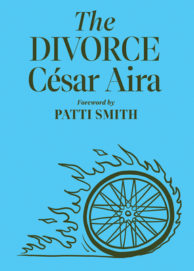 Leticia, who’d been translating my 2005 book Lyric Poetry after Auschwitz into Spanish, arrived a bit late from the outskirts of the city. We kissed on the cheek, as is the custom. Down to earth in the most appealing way, she apologized about her bus breaking down.
Leticia, who’d been translating my 2005 book Lyric Poetry after Auschwitz into Spanish, arrived a bit late from the outskirts of the city. We kissed on the cheek, as is the custom. Down to earth in the most appealing way, she apologized about her bus breaking down.
How often does a goddamn city bus break down, you know? she said.
We went outside to sit at a table on the sidewalk. She had been at the reading that I’d given the day before with Forrest Gander and Reynaldo Jiménez for the latter’s legendary publishing house tsé-tsé. I told her, somewhat tongue-tied, that I was still feeling the hangover of having read so poorly, coupled with an actual hangover from way too much grappa, but that the top-shelf coffee I’d just had made me feel better. She laughed and said something to the effect that only people who are not poets ever recall the details of poetry readings, anyway, and almost no people who are not poets go to poetry readings, so why worry? It was a charmingly clever thing for her to say, even if it didn’t make me feel better.
We talked for a bit about the translations. She showed me some versions and asked questions. Her renderings were magnificent, and the frankly pornographic language, where it appeared in a poem about the Abu Ghraib tortures, was explicitly and exactly rendered by her. The next year, her translations would appear in Madrid, and in a few publications in South America.
We smoked, because if you are a poet or artist at a Palermo café, smoking is a natural thing, or at least it still was then. People walked by us on the sidewalk, in the mid-morning. Everything was just right at the café where Borges and Bioy Casares often met. The owner, the very fit octogenarian El Gallego himself, dressed no differently than his polished wait staff, in white jacket and black tie, appeared next to our table. He gave us a nod and proceeded to place an old, iron crank into the awning right above us.
Ah, thank you, said Leticia.
Yes, yes, of course, said El Gallego. He slowly turned the crank.
As the awning squeaked out, I was about to ask him if he’d ever chatted with Borges (for surely he must have), when an indistinct figure pulled up and hopped off a bicycle, quickly locking it to the lamppost immediately in front of our table. And the very moment the lock clicked, a massive cascade of rainwater—as in many buckets of it; the old canvas awning hadn’t been fully closed during the night—dropped in one waterfalling slosh, onto the bicyclist.
The young man cried out and stood there, open mouthed, gasping at the shock of it, looking directly at us. He blinked a few times and wiped his face.
LETICIA!! he cried.
ENRIQUE!! cried Leticia.
No es posible! said the young man. (He looked and sounded familiar.)
Oh my god, cried Leticia. Are you fucking kidding me? (All of this in Spanish.)
No, it’s me, Enrique! KENT!? cried Enrique, again.
What? What? I shouted (again, everything was in Spanish), finally grasping that the young man with plastered hair—who had shaved off his moustache after I’d left, I noticed now—was Enrique, the owner of the pensión where I was staying.
Ha ha ha! laughed El Gallego, No question this godforsaken dive is haunted.
He left to fetch a towel for the wet man.
Enrique and Leticia embraced and kissed on the cheek, awkwardly, and they held hands and gazed at each other for a few seconds, beaming. Then Enrique, looking over Leticia’s shoulder, cried out yet again.
MAMÁ!!
HIJO!! said the woman, approaching on the sidewalk. You almost drowned! Didn’t you get my message I was coming into town?
SEÑORA!! cried Leticia.
It was Enrique’s mom, who lived some distance away and whom Enrique had not seen, it turned out, for weeks. Leticia had not seen her for many years, but in the past the two of them had been very close.
They all embraced and laughed and cried out in disbelief. No, Enrique had not gotten her message. This is totally weird, he said.
I sat back down and watched. El Gallego returned with a towel under his arm, chuckling and clapping. Now what happened? he asked.
I spoke to Enrique‘s mother for a few minutes, while the two old friends moved a little ways down the sidewalk in animated talk. She told me that she and her late husband had often met at El Gallego when they were courting. In the ’60s, she said, tearfully. People in politics gathered here. That’s how we met.
She had to get to an appointment of some kind; Enrique said he would accompany her there. So he and Leticia exchanged phone numbers, promising to be in touch soon. I called after Enrique as they walked away, reminding him about our appointment for grappa.
We’ll have a good time, Kent! (We would.)
What just happened cannot be, said Leticia. He and I were sweethearts in high school. We haven’t seen each other for nearly twenty years. We’d lost all contact. I’ve never forgotten him. And you are staying at his pensión?! Give me a break . . .
Eventually, she and I went back to looking at her translations for a while, though a bit distractedly. We realized we had been at the café for a good three hours, and that the lunch crowd was coming in. El Gallego said he would not forget the day, and that the bill was on him.
Enjoy life, he called out. It is brief. And full of surprises!
Leticia and I walked around Palermo for a while, including by a handsome corner pub that she mentioned was frequented by César Aira, her favorite living writer. I told her that she probably wouldn’t believe it, but Forrest and I were meeting Aira in just a couple hours, at a bookstore.
Of course you are! she cried. What else could happen today? Oh my god. You should tell Aira what happened to us this morning!
I promised I would. We bid farewell in front of the headquarters of the Palermo Football Club.
A few hours later, Forrest and I met César Aira at a literary bookstore, whose name I can’t now recall. Forrest had arranged the meeting, as he and Aira were fellow New Directions authors. We’d gotten lost for a spell and were late, and Aira seemed somewhat annoyed to have been made to wait. He stamped out his cigarette and we went inside. At least three of the clerks and two customers greeted him by name. He made a point to show us books by his favorite authors (some Russians and French, Felisberto Hernández, Faulkner, Bolaño) and also his own books, too, which were many—the bookstore had all of his nearly 100 works, it seemed. It was one of the best bookstores I have been in: all of Borges, all of Cortázar, all of Pizarnik, all of Ocampo, all of Di Giorgio, all of Vila-Matas, and on and on.
I asked Aira which book of his he would want me to read if he could name only one, and he reached to the shelf and pulled out Una novela china, which has not yet been translated into English.
I have a soft spot for it, he said.
It remains one of my very favorite books by him, a slim, moving masterpiece.
Let’s go have a drink, said Aira. He led us down a few blocks and turns, until we were in territory I recognized, by the Palermo Football Club, and one block down was the very boliche that Leticia had pointed out, Aira’s haunt. We’ll sit outside, said Aira. And so we did.
Aira talked about his writing. I recall him going on with great eloquence about how writing was mainly labor, that one just had to do it, to write and write, to allow for accretions of material that would then suggest unsuspected possibilities of combination and construction, and so forth. A novel, he said, may be assembled from the debris of failed or unfinished ones. A serial correspondence of room to room . . .
A bit like Jack Spicer? I interjected, slightly drunk.
Who? he said.
I started to explain, but then Aira said, You mentioned as we walked here that something quite extraordinary happened to you this morning. Tell me, now.
The place was full by this time of the evening, and as I told my strange, barely believable tale, I noticed a number of people were looking at us, some of them whispering, for Aira’s celebrity in Buenos Aires is considerable.
And so that is what happened, I said, finishing my story, And I swear every bit of it is true.
Aira snuffed out his cigarette, took off his glasses, and started to laugh and slowly clap, somewhat the way El Gallego had earlier that day. He kept clapping and laughing for what seemed like a good half minute, drawing more furtive attention our way. He grabbed my shoulder and made a few remarks about how what seem like coincidental events may well harbor quantum motivations, like spooky-action-at-a-distance, within them. Or, who knows, maybe something totally outside scientific description.
Then, without warning, Aira announced that he was leaving.
Bueno, me voy!
He quickly stood up, extended his hand to both of us, and walked away. It was both rudely and charmingly abrupt, as his fiction can often be. But when I found out from Forrest, two or three years later, that Aira was writing a novel based on my account of the uncanny coincidences that day, it occurred to me that he might have left in such a sudden manner because he didn’t want to forget the particulars. And indeed, with the exception of just one detail (Enrique’s mother was not sitting in the café, as he has it in The Divorce, but approached us from the sidewalk), he got everything right, down to the very names of everyone involved, including me, whom he has as narrator of the book. And he’d never taken a single note.
The next day, in Montevideo, I read Una novela china in one sitting. A gorgeous, lyrical novella about a bisexual Chinese writer, artist, optician, and hydraulic engineer, it is set during the early years of the Chinese Revolution. Like so much of Aira’s work, the book is marked by barely believable coincidences.


